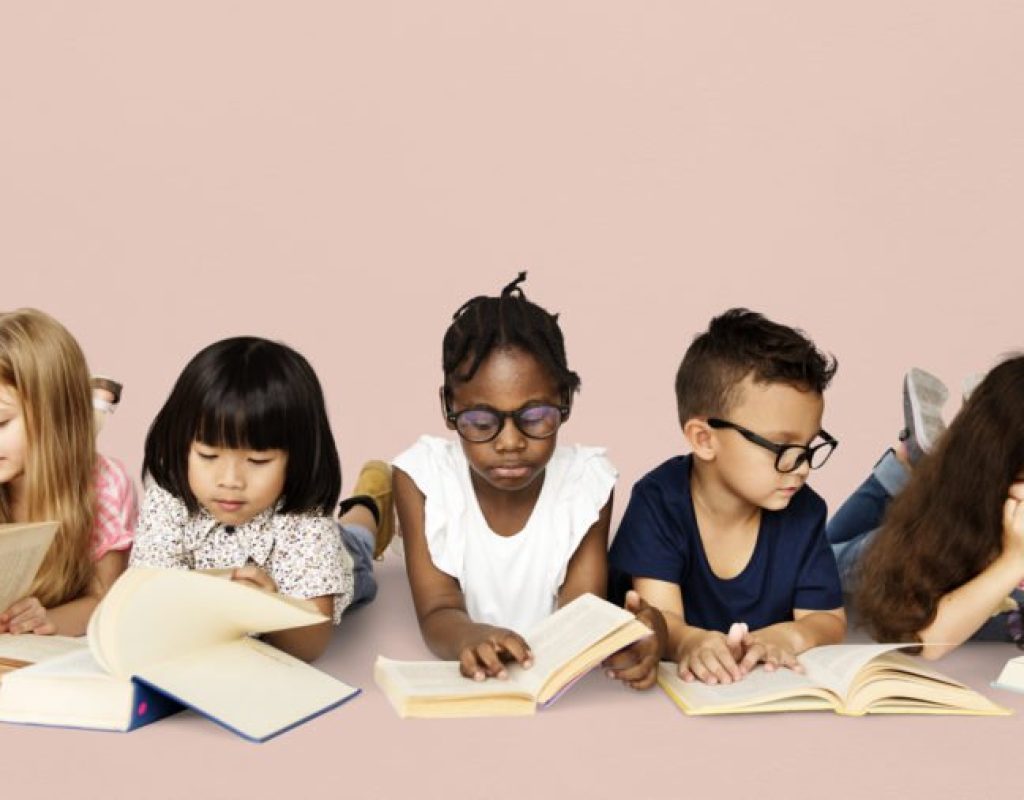Reading recommendations from Dr. Alice Mar
Whew, it’s mid-June and 2020 has been quite a year! I think a lot of us have been thinking about the importance of talking to our kids about race and racism. Sometimes, it’s a hard conversation to know how to have. One way that can help start that conversation is to read books with your kids that feature characters from a diversity of backgrounds and cultures and races.
I think sometimes we tend to pull out books about civil rights heroes like Rosa Parks, Martin Luther King Jr. and Ruby Bridges in February for Black History Month, but then they get put back on the shelf the rest of the year. Books about Civil Rights heroes are awesome and important to read, but I think it’s equally important for kids to read books featuring kids that don’t look like them but who are doing ordinary things and experiencing similar joys and struggles. For this list, I’m going to focus on the latter kinds of books. I’m also focusing on books about kids growing up in United States. As a disclaimer of sorts, I’ll say that this list is by no means comprehensive, I’m obviously leaving a lot out. Two great resources for diverse books are hereweeread.com and weneeddiversebooks.org.
Picture Books:
The Snowy Day by Ezra Jack Keats (or any of the other books by Keats about Peter)
Written in 1962, this book won the Caldecott medal the next year and is a classic for a reason. With the simplicity of it’s illustrations and it’s warmth, Keats demonstrates a wonderful understanding of childhood. Peter is a little boy exploring his city neighborhood on a snowy day. I remember being fascinated by the urban landscape in this book when I was a kid growing up in suburbia.
Last Stop on Market Street by Matt de La Pena
Winer of the Newbery Medal in 2016 and also a Caldecott Honor book, this book tells the story of a little boy riding the bus across town with his grandmother. The boy, CJ, asks his grandmother questions (like why they don’t have a car) and isn’t happy at first that they are taking the bus through the “dirty part” of town to the same place they go every Sunday after church. The grandmother lovingly points out to the boy all the beauty in the world around him and at the end the reader discovers that they are going to work in a soup kitchen.
Feast for 10 by Cathryn Falwell
A basic counting book for the very young that shows an African-American family preparing for a large family gathering. The illustrations are vivid and beautiful and the warmth and love expressed in the family’s expressions come through clearly.
Marisol McDonald Doesn’t Match by Monica Brown and Sara Palacios
Featuring a Peruvian-Scottish-American main character, this hilarious and charming book explores what it’s like to be biracial and “not match”. Marisol has bright red hair and brown skin. She likes peanut butter and jelly burritos. Other people don’t get it but it all makes sense to her. As the mother of biracial kids, I especially appreciate this one.
Henry’s First-Moon Birthday by Lenore Look and Yumi Heo
Jenny has a new brother who is about to celebrate his one month (first-moon) birthday. There is a big celebration planned for him, which Jenny is a little conflicted about. Like most older siblings, Jenny isn’t really sure Henry deserves all the fuss. As the family prepares for the birthday we learn about some Chinese traditions like the giving of red eggs. This (and the other book about Jenny and her family) are great examples of books that highlight the differences in cultures while also emphasizing the universality of childhood emotions like sibling jealousy and love.
Chapter Books
Year of the Book by Andrea Cheng
This first in a series of early chapter books (for roughly Grades 1-3) features Anna Wang, a Chinese-American girl who has just lost her best friend to a clique. Anna loses herself in reading. The book is as much about navigating friendships as it is about race, but Anna’s culture is also treated as something that is central to who she is.
El Deafo by Cece Bell
Disabilities are often an overlooked area of differences. This grahic novel was a 2015 Newbery Honor book tells the story of the author/illustrator grappling with hearing loss as a child and her experiences with a powerful but awkward (she can hear things that she shouldn’t) hearing aid. El Deafo is the superhero alter ego she comes up for herself. Other great books about disability are Wonder by R. J. Palacio and Counting by 7s by Holly Goldberg Sloan (featuring a girl likely on the autism spectrum although that is never explicitly stated)
Brown Girl Dreaming by Jacqueline Woodson
Winner of multiple awards, including the National Book Award, this novel told in verse tells Woodson’s own story growing up in South Carolina and New York. She talks about growing up African American in the 1960s and 1970s but also about being a child who loved stories and eventually found her voice as a writer.
Other excellent novels in verse are Crossover by Kwame Alexander (about a boy who loves basketball and poetry and his sometimes complicated relationship with his twin and his father), Inside Out and Back Again by Thanhha Lai (semi-autobiographical novel about the author’s experience as a Vietnamese refugee growing up in Alabama), and Other Words for Home by Jasmine Warga (story of a Syrian refugee girl trying to fit in to a new home in Ohio).
One Crazy Summer by Rita Williams Garcia
The story of three sisters who travel to California from New York to stay with their estranged mother in the summer of 1968. Their mother is an artist who is involved with the local Black Panther group.
Echo by Pam Munoz Ryan
Part fairy-tale and part historical fiction, this book follows the lives of three children at pivotal moments in history. One is a boy in Nazi Germany suffering from epilepsy one is an orphan during the Great Depression and one is a migrant farmer’s child in Southern California during WWII. The theme of music weaves together all three stories in a beautiful way. There are many historical points in the stories that allow for discussions of inclusion (the Japanese internment camps, the struggle for desegregation of schools in California among Latinos).





